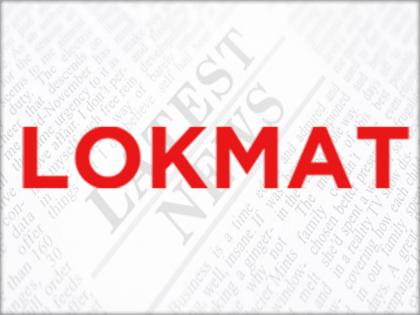Pak more unsafe, unstable, internationally weak now: PPP
By IANS | Published: August 23, 2019 05:44 PM2019-08-23T17:44:10+5:302019-08-23T18:00:11+5:30
The opposition Pakistan Peoples Party (PPP) has issued a "white paper" on the one year performance of the Pakistan Tehreek-i-Insaf (PTI) government, alleging that "Pakistan is more unsafe, unstable, more economically vulnerable and internationally weak" since last years general elections.

Pak more unsafe, unstable, internationally weak now: PPP
Titled "One Year of Tabahi (destruction)", the 112-page white paper, which was released on Thursday, declares that the first year of the 'selected' government witnessed destructive policies, U-turns, broken promises and dashed hopes.
"And not only its 100-day plan, but also its theatrical plan released after 100 days of its tenure remains incomplete, patchy and just a pipe dream," it says.
The white paper says that almost all promises made in the manifesto, in the speeches, or pledges to the people remain unfulfilled. "Not only that the PTI is disguising its lies in their characteristic U-turns on every promise ranging from not taking loans, to not going to the International Monetary Fund (IMF), to implementing austerity, etc," it says.
The PPP has also criticised the government for allegedly curbing media freedom, saying that "in order to silence the people, Imran Khan's one-year achievement is to gag the media, silence the judges, water-cannon citizens daring to protest and persecute the opposition by imprisonment of its leaders. In fact, that is perhaps the only sinister implementation of his promise; of witch hunting the political leaders in the name of accountability".
The list of the PTI's failures is increasing by the day and in every sphere ranging from domestic politics, to parliamentary performance, from economy to social policy, from federal politics to local politics, the country is only sliding into mis-governance and chaos, says the white paper issued four days after the first anniversary of the installation of the PTI government.
The lower and middle classes have been forced into abject poverty, unemployment and an ever-growing burden of rising fuel, utilities and basic food items' prices has spread despondency and depression among the people.
It says that the PTI's policy of giving amnesty to the rich and imposing taxes on the poor and middle classes has delivered the exact opposite of the promise.
It says that a report by a UN commission has put Pakistan's GDP growth at 4.2 per cent in 2019 and four per cent in 2020 compared to Bangladesh's 7.3 per cent, India's 7.5 per cent and the Maldives' and Nepal's 6.5 per cent each in 2019.
The PPP has termed the PTI's slogan of "austerity an eyewash", saying that the budgeted expenditures have witnessed Rs 449 billion surge despite the adoption of austerity measures by the government.
Under the PTI government, it says, inflation has skyrocketed to over 10 per cent, the highest in five years, and foreign direct investment dropped significantly, and thus, there was no choice but to approach the IMF for a bailout.
According to the State Bank of Pakistan, the country's public debt increased to Rs 27.1 trillion by the end of January 2019, that is, an increase of Rs 2.4 trillion in just five months since August 2018. This more than doubles the rate of increase in the public debt recorded during the tenure of the previous PML-N government, it adds.
"If the impact of devaluation of the rupee is added, and the increase in interest rate, then the overall impact on debt burden is more than Rs 7.2 trillion, which is the largest that any previous government has borrowed," it says.
In one year, the rupee lost nearly 25 per cent of its value from Rs 125 to Rs 160. "This has added to the overall debt burden of Pakistan. The devaluation was haphazard and ad hoc, leading to economic instability in the country."
The white paper says that with the third political transition, one expected some political stability in the country. "But Imran Khan's aggressive political sloganeering, and his fake rhetoric accountability increasingly led to conversion of Pakistani power into a fascist one. While on the one hand the opposition was being witch hunted, government's own corrupt in the ranks were protected making National Accountability Bureau (NAB) actions controversial," the white paper adds.
"Under the garb of accountability, the PTI government is making an absolute mockery of the growing democracy in Pakistan and is targeting its political rivals presenting itself as a classic/de facto martial law regime. Two former prime ministers Nawaz Sharif and Shahid Khaqan Abbasi are in jail and one former president Asif Zardari is in jail," it says.
( With inputs from IANS )
Open in app